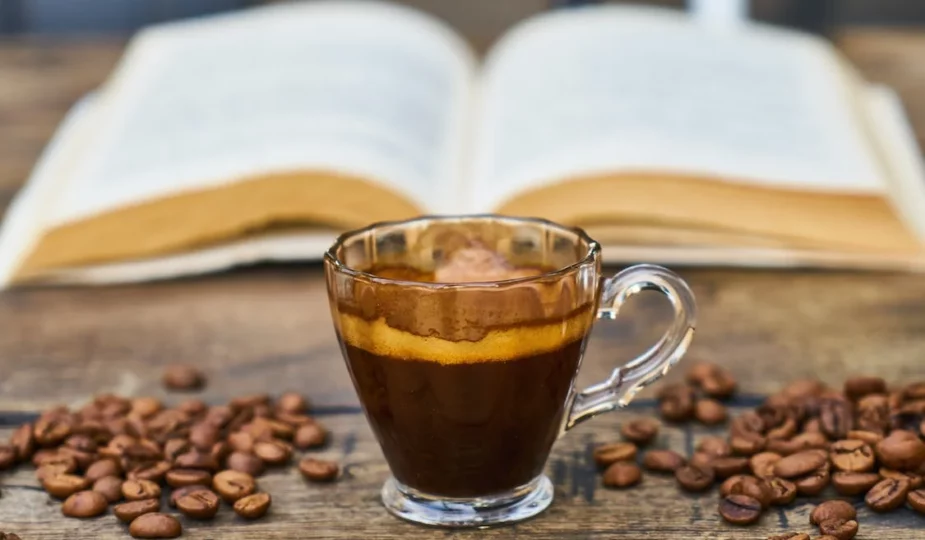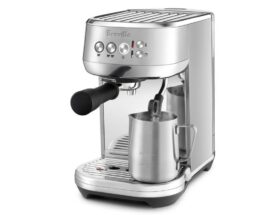
Budapest’s Coffee Charms: A How to Guide to Hungarian Coffee!
There’s no denying that coffee has always been a significant part of our daily lives. Whether it’s your morning pick-me-up or your late-night companion, coffee serves not merely to awaken the senses, but to create memories. But have you ever experienced a Hungarian coffee? Welcome to the fascinating world of Budapest’s coffee charms and Europe’s café culture! This blog will serve as your guide to the enchanting realm of Hungarian coffee, taking you down the lanes of Budapest’s historical coffee houses and offering a taste of their irresistible brews.
Whether you’re seeking authentic Hungarian coffee recipes or planning to explore Budapest’s historic coffee houses, this guide will help you discover the rich traditions and best spots in Hungary’s vibrant coffee scene. From traditional kotyogós brewing to modern Budapest coffee tours, we’ll explore everything you need to know about this fascinating coffee culture.
Table of Contents
- An Intriguing Brew: A Fascinating Fact about Hungarian Coffee
- What Makes Hungarian Coffee Unique?
- The Essential Equipment for Enjoying Hungarian Coffee
- Essential Equipment List
- Step by Step Guide: How to Brew the Perfect Hungarian Coffee
- Frequently Asked Questions
- 1. What makes Budapest’s coffee culture unique?
- 2. How does Hungarian coffee differ from other European coffee?
- 3. What are the must-visit coffee shops in Budapest?
- 4. What is the role of coffee in Hungarian culture?
- 5. What is the best time to experience Budapest’s coffee scene?
- 6. How can I navigate Budapest’s coffee scene as a tourist?
- 7. What is Hungarian coffee similar to?
- 8. What is the best season to experience Budapest’s coffee culture?
- Seasonal Coffee Experience in Budapest: A Year-Round Guide
- Conclusion
An Intriguing Brew: A Fascinating Fact about Hungarian Coffee
Did you know that Hungarian coffee culture dates back to the 16th century during the Ottoman Empire’s rule? It was during this period that coffee was first introduced to Hungarians. The Turks would abandon their coffee beans while retreating from battles, and it was from these remnants that the locals learned to grow coffee plants. They evolved their unique way of brewing coffee, which is now an essential part of their daily lives. This historical tidbit serves to enhance the allure of Hungarian coffee, making every sip a taste of rich history and tradition.
What Makes Hungarian Coffee Unique?
Budapest’s coffee culture is a captivating blend of history, tradition, and a profound love for quality. Understanding what makes Hungarian coffee unique involves delving into its distinct characteristics and the influence of centuries-old brewing methods. Here are the key elements that set Hungarian coffee apart:
- Strong and Rich Flavor: Hungarian coffee is renowned for its robust, full-bodied flavor. The brewing process, similar to Turkish coffee, involves boiling finely ground coffee beans in water. This method extracts a potent concentration of coffee, resulting in a brew that is both intense and satisfying.
- Traditional Brewing Techniques: The preparation of Hungarian coffee follows traditional brewing techniques that date back centuries. The use of a specific coffee pot known as ‘kotyogós’ (Moka Pot) is a testament to the preservation of historical methods. This distinctive approach contributes to the authentic taste that defines Hungarian coffee.
- Dark Roast Preference: The choice of coffee beans plays a pivotal role in the unique flavor profile of Hungarian coffee. Dark roast beans are favored for their strong and rich characteristics, standing up well to the brewing process. The dark roast adds depth and a certain boldness to the coffee, making it a distinctive experience for enthusiasts.
- Turkish Influence with a Hungarian Twist: The roots of Hungarian coffee culture can be traced back to the Ottoman Empire’s influence. However, Hungarians have added their own twist to the Turkish coffee tradition. The combination of historical influences and local adaptations results in a brew that carries a piece of both worlds.
- Cultural Significance: Hungarian coffee is not merely a beverage; it is deeply ingrained in the culture and way of life. Coffee shops, known as ‘kávéházak,’ have served as gathering places for intellectuals, artists, and locals throughout history. The social and cultural significance of coffee in Hungary adds an extra layer of depth to the overall experience.
- Diverse Coffee Scene: While traditional Hungarian coffee remains a staple, Budapest’s coffee scene has evolved to embrace diversity. Today, you’ll find a range of specialty coffee styles, from espresso to pour-over, reflecting the dynamic and innovative spirit of the city’s coffee culture.
Hungarian coffee’s uniqueness lies in its strong, traditional roots, the use of dark roast beans, a distinctive brewing method, and the cultural significance it holds in the hearts of the people. Exploring Budapest’s coffee charms unveils a rich tapestry of flavors and history, making each cup a truly unique and unforgettable experience.
The Essential Equipment for Enjoying Hungarian Coffee
In order to truly savor the rich, bold flavors of Hungarian coffee, there are a few essential pieces of equipment that you need. Read on to discover the tools you need to recreate the perfect Budapest café experience at home.
Coffee Grinder
First and foremost, a good coffee grinder is paramount. Coffee beans should be ground just before brewing to ensure the freshest, richest taste. There are two main types of grinders: burr and blade. Burr grinders are generally more expensive, but they provide a more consistent grind size. Blade grinders, on the other hand, are less expensive and more compact, but they can result in unevenly ground beans.
Espresso Machine
Next up is the espresso-at-home”>espresso-at-home”>espresso-at-home”>espresso-at-home”>espresso-at-home”>espresso-at-home”>espresso machine. This is where the magic happens. The high pressure of the water being forced through the finely ground coffee beans extracts their full flavor, resulting in a robust, concentrated shot of coffee. Traditional espresso machines can be quite pricey, but there are also more affordable options available, such as stovetop or manual espresso makers.
Milk Frother
If you enjoy milk-based coffee drinks like cappuccinos or lattes, a milk frother is a must. This tool whips air into your milk, creating a light, creamy froth that sits atop your coffee. Frothers range from simple manual devices to more advanced electric frothers with multiple settings.
The Right Beans
Last but not least, the coffee beans themselves are a critical part of the equation. The type of beans you choose will greatly influence the flavor of your coffee. For a taste of traditional Hungarian coffee, look for dark roast beans. These have a strong, full-bodied flavor that stands up well to the brewing process.
Essential Equipment List
- Coffee grinder
- Espresso machine
- Milk frother
- High-quality dark roast coffee beans
With these tools in hand, you’ll be well on your way to experiencing Budapest’s coffee charms from the comfort of your own home. Grab your favorite book, put on some relaxing music, and let the rich aroma of freshly brewed Hungarian coffee transport you to the heart of Europe’s café culture.
Step by Step Guide: How to Brew the Perfect Hungarian Coffee
One of the most enchanting experiences Budapest has to offer is savoring a cup of traditional Hungarian coffee. Follow this step-by-step guide to recreate this magic at home!
Ingredients
- 1 tablespoon of finely ground coffee
- 1 cup of water
- 1 teaspoon of sugar (optional)
Instructions
- Boil water in a pot or kettle.
- Place your ground coffee in a traditional Hungarian coffee pot, known as a ‘kotyogós’ – aka the mighty Moka Pot.
- Pour the boiling water over the coffee grounds.
- Stir in sugar if desired.
- Place the coffee pot on a low heat and let it simmer. Do not let it boil!
- Once the coffee starts to froth, remove it from the heat.
- Allow the coffee to settle for a minute before pouring it into your cup. Enjoy!
Frequently Asked Questions
1. What makes Budapest’s coffee culture unique?
Budapest’s coffee culture is steeped in history, tradition and a love for quality. From the grandeur of its historic coffee houses to the innovative spirit of its modern specialty coffee shops, Budapest offers a diverse and vibrant coffee scene that is unmatched in Europe. You’ll find a mix of old-world charm and contemporary trends, making Budapest’s coffee culture a must-experience for any coffee lover.
2. How does Hungarian coffee differ from other European coffee?
Hungarian coffee is characterized by its strong flavor and rich aroma. Traditionally, it’s made by boiling finely ground coffee beans in water, similar to Turkish coffee. But today, you’ll also find a range of specialty coffee styles in Budapest, from espresso to pour-over, reflecting the city’s dynamic coffee scene.
3. What are the must-visit coffee shops in Budapest?
Budapest boasts a plethora of exceptional coffee shops. Here are a few you shouldn’t miss:
- New Wave Coffee – known for their artisanal approach and meticulously brewed coffee.
- Espresso Embassy – a favorite for their excellent espresso and cozy atmosphere.
- My Little Melbourne – a hip Aussie-inspired coffee shop serving up top-notch brews.
4. What is the role of coffee in Hungarian culture?
Coffee holds a special place in Hungarian culture. It’s not just a beverage, but a way of life, a tool for socialization, and a symbol of hospitality. Coffee shops, or ‘kávéházak’, have long been gathering places for intellectuals, artists, and everyday people alike, playing a crucial role in the country’s social and cultural life.
5. What is the best time to experience Budapest’s coffee scene?
While Budapest’s coffee shops are buzzing year-round, the best time to experience the city’s coffee culture is in the morning, when locals flock to their favorite spots for their daily caffeine fix. But don’t worry if you’re not an early bird. Many coffee shops also serve delicious pastries and light meals, making them perfect places to relax and refuel at any time of day.
Navigating Budapest’s coffee scene is easy, even for first-time visitors. Most coffee shops are centrally located and within walking distance of major attractions. Some even offer coffee tours, providing an insider’s look into Budapest’s coffee culture. Just remember to bring your love for coffee, and you’re sure to have an unforgettable experience.
7. What is Hungarian coffee similar to?
Hungarian coffee, traditionally known as ‘Egri kávé’, is very similar to Turkish coffee. It’s traditionally prepared by boiling finely ground coffee beans in water, creating a strong, full-bodied brew. The coffee is often served in small cups, and the grounds, which settle at the bottom, are typically left unconsumed. This method of brewing, and the intense, rich coffee it produces, is a hallmark of both Hungarian and Turkish coffee cultures.
8. What is the best season to experience Budapest’s coffee culture?
Each season offers unique coffee experiences in Budapest. Spring brings outdoor seating and fresh blends, summer features creative cold brews, autumn introduces spiced variations, and winter showcases traditional warming drinks in historic settings. The Budapest Coffee Festival in spring is particularly notable for coffee enthusiasts.
Seasonal Coffee Experience in Budapest: A Year-Round Guide
Budapest’s coffee scene transforms with the seasons, offering unique experiences throughout the year. Here’s what you can expect during your visit:
Spring (March-May)
- Traditional Hungarian coffee houses open their terraces
- Special spring blend introductions at local roasteries
- Budapest Coffee Festival (typically in April)
- Lighter roasts and floral notes become popular
Summer (June-August)
- Cold brew variations of traditional Hungarian coffee
- Iced káveház specialties
- Outdoor coffee gardens in full bloom
- Evening coffee tastings in historic districts
Autumn (September-November)
- Spiced Hungarian coffee variations emerge
- Cozy indoor káveház atmosphere returns
- Special harvest blend releases
- Coffee and pastry pairing events
Winter (December-February)
- Traditional Hungarian coffee with warming spices
- Holiday coffee specials in historic cafes
- Indoor coffee workshops and tastings
- Festive káveház decorations and ambiance
Best Times to Visit Coffee Houses
- Early Morning (7-9 AM): Experience local coffee culture with Budapest residents
- Mid-Morning (10-11 AM): Perfect for relaxed tastings and photos
- Afternoon (2-4 PM): Ideal for coffee and pastry pairings
- Evening (7-9 PM): Experience the historic coffee house ambiance
Conclusion
Embarking on a journey through Budapest’s coffee culture, one sip at a time, is a captivating adventure that won’t soon be forgotten. Immersing oneself in the rich traditions of a coffee method steeped in history and crafted with love, gives us a whole new perspective on this liquid delight. The talk of Hungarian coffee is inseparable from the grandeur and charm of Europe’s café environment.
We hope this guide has brewed an irresistible urge within you to experience Budapest’s coffee charms firsthand. There’s much more to explore and taste at Ten Coffees.
We warmly encourage our readers to contribute to our collection of coffee stories. Share your thoughts, experiences, or simply the name of your favorite cafe in Budapest. We want to hear your coffee tales, so don’t hesitate to engage and leave a comment.









